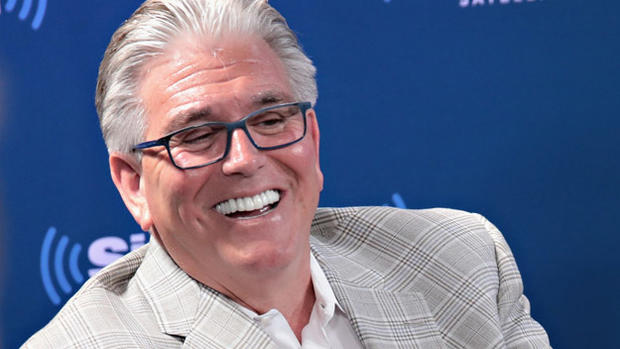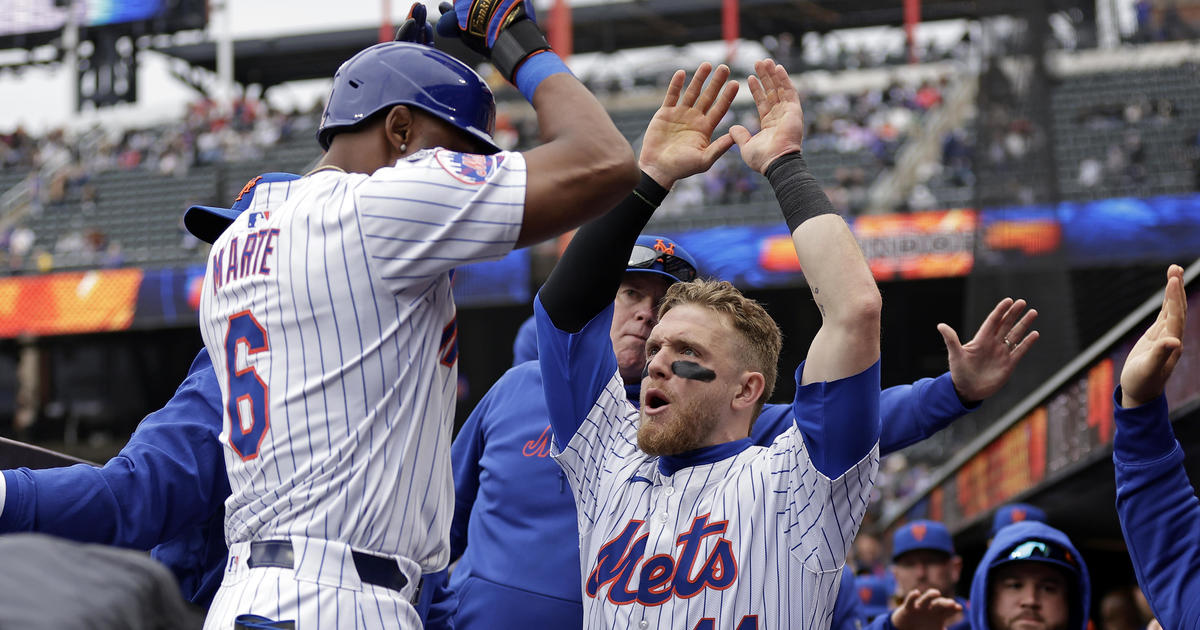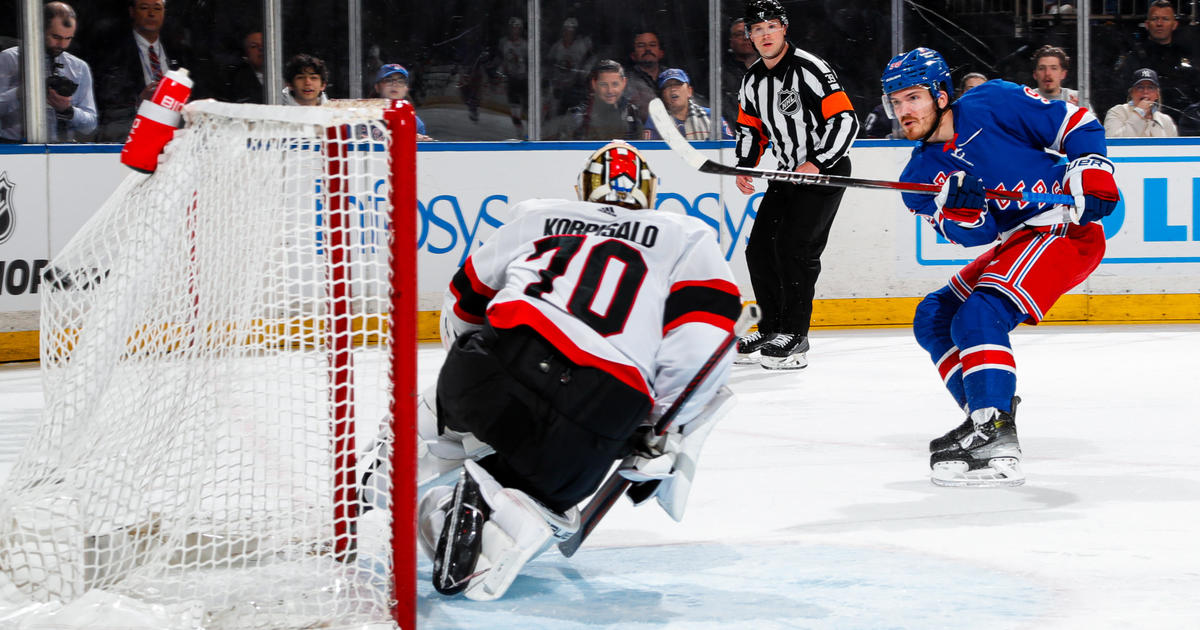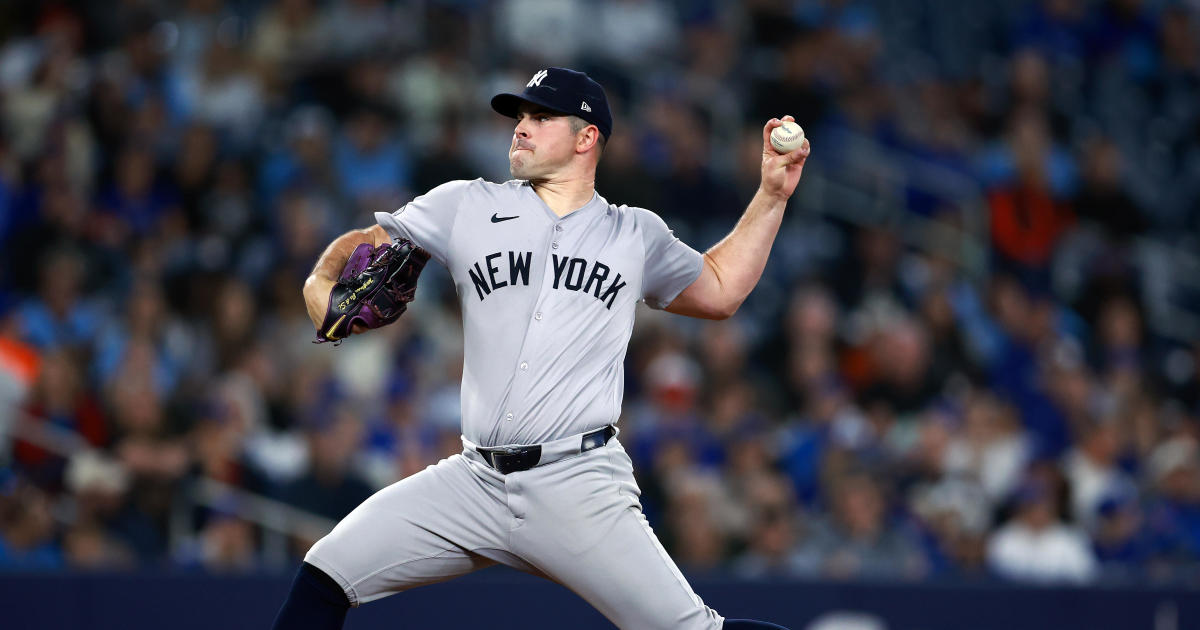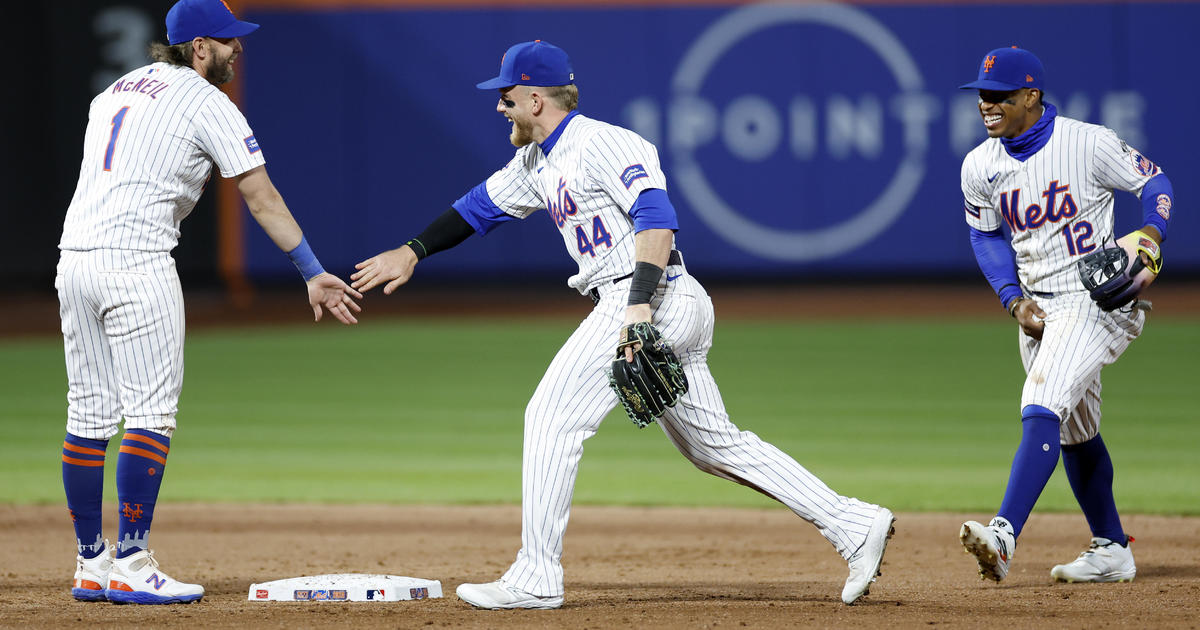Q&A With Mike Francesa Part 2: Memorable Interviews, Mad Dog Years, More
NEW YORK (WFAN) -- The second half of Jason Keidel's two-part interview with Mike Francesa touches on his groundbreaking career, who some of his best guests were, what went wrong with one guest, what went wrong with his legendary wingman and how he feels about his biggest media critic.
Also, Francesa dishes over his legacy, his audience and how he thinks the public perceives him.
MORE: Q&A With Mike Francesa Part 1: 'I'll Miss All Of It'
The sports talk pioneer will sign off from WFAN on Dec. 15, ending a 30-year run.
Jason Keidel: Who were the biggest influences on your professional life?
Mike Francesa: The biggest influences on me were Brent Musburger and Don Imus. They were very smart and great performers. And they understood the business. Most broadcasters know nothing about the business they're in. Both of them did. The third person would be Jim Nantz. I broke him into the business, but he made the phone call that got me into WFAN.
Nantz is like a brother to me. I have a lot of close friends in the business, like Mike Breen. I'm closer to him than anyone in the business. For 30 years, we're like family.
JK: Was there someone in sports you didn't look forward to interviewing and became a great spot?
MF: George Young. He brought a great personally without even trying. He was trying to be cantankerous. He was trying to debate and scold us. He wanted to prove us wrong. David Stern was another. David loved to debate us, too, and both wanted to pound us into the ground.
I started a close relationship with Bill Parcells in the '80s. He asked me to host a dinner, and from there we became very close. George Young didn't like that, so he developed a relationship with Dog (Chris Russo). That's how important WFAN was. Young didn't like that Parcells had control of the most powerful sports show in New York City, so he countered it by getting close with Dog. They both battled and sent their messages through WFAN. That went on for a long time.
JK: Name one famous person in sports history whom you wish you had interviewed.
MF: That's easy. Joe DiMaggio. He was our Moby Dick. We never got him. We tried him every which way. We both wanted to talk to DiMaggio. We went through his lawyer. He was very close to Hank Greenberg down in Florida, whom I knew as well, and we tried to go through him. He didn't trust he would get through the interview. We thought we had him a couple times. He knew we had a reputation for being tough. We went through Ted Williams. We tried everything. What you learned was that DiMaggio wasn't really close with anyone.
MORE: Mike Francesa 30 Years At WFAN
JK: Hardest interview?
MF: Hardest interview, by far, was Don King, because you couldn't get a word in edgewise. You couldn't even get in a question before he'd launch into a 20-minute soliloquy. He knew words you never even heard of, and they'd all rhyme. He was like a machine. He'd see Dog and say, "Mike and the Mad Dog, only in America!"
JK: What happened with Pat Riley?
MF: He gave us all the time we wanted. We could go to Game 7 of the Finals, and he'd talk only to us. He was wonderful. He'd come to us at 5 p.m. for a 9 p.m. game. But once he faxed in his (Knicks) resignation from Greece, we had to get after him for it. And he never forgave us.
I actually had a sit-down with him, just to show you how his mind works. My wife and I were on vacation at Loews Santa Monica. This is a few years into his job with the Miami Heat. My wife told me he was sitting by the pool. So I walked over and asked him if I could sit with him. We rehashed the whole thing for 2½ hours. And we never could agree on what happened.
The entire issue was loyalty. He said, "You owed me. I gave you everything, and I needed you there, and you didn't do anything but beat me up there. You owed it to me to have my back." He's never been on since, except one time when we did Patrick Ewing's retirement ceremony at the Garden, and he would only talk Ewing. He's never gone on with me since, or with Dog on his show.
JK: Did at least part of you agree with him?
MF: I totally got his point. I thought he had a fair point of view. And I understood what he was saying. But we thought he was wrong. And I can't take a dive for him. We hurt him, for some reason. It really hurt him. He had given us so much unfettered access, and he wanted us to look out for him. Riles is a big loyalty guy.
LISTEN: 'Francesa: A Night To Remember'
JK: Who had you awestruck?
MF: Mickey Mantle. He was my only idol. I interviewed him four times. I was scared to death of him. I didn't want to act like an idiot, because I knew so much about him. First time he was great. Second time he was drunk and ornery. He would ask us to do a show from his restaurant when he had a book signing. The last time or two he was on the wagon, but he was a shell of himself.
JK: What's with Phil Mushnick?
MF: We got along in the beginning, then we had some kind of falling out, probably 20 years ago. I remember when he started attacking me all the time, and then it got so absurd I gave up. And so I stopped reading him at least 10 years ago.
JK: You've always been a political wonk. Ever consider a political show?
MF: I don't like where politics is going. There's no middle ground. You're either an ideologue on one side or another. You can't get ratings in the middle. You have to cater to the crazy right or crazy left. The closest to being down the middle is Chris Wallace. You're just not getting a fair show from anyone. I want unvarnished news, and let me make up my mind.
WATCH: Mike-I-Mation
JK: How much of the show is Mike the sports fan and how much is Mike the New Yorker?
MF: I consider myself a sportscaster, not a fan. I have favorite people I root for, but I don't give any team or club the benefit of the doubt. I don't ever say "we" and the only team I've ever had any love for is the Yankees, and I'm as hard on them as anyone. The New Yorker part only comes up when I'm on national TV and some people use as a criticism, but that's the only time I've heard that.
JK: Before you met Chris Russo, had you heard anything about him?
MF: I knew his name, but I'd never met him. I knew Imus was pushing him. I'd only heard a couple shows. This was before Imus and I were really tight. In fact, I think Imus liked Dog more than he liked me at first, because he was zany. He liked Dog's on-air persona more. The crazier, the better for Imus.
JK: Is there something you wish you could have changed with Mad Dog?
MF: Nothing. I'd been told he was leaving by someone I trusted. I just wish he'd been honest. It just caused a lot of friction when he kept denying it. I just wish he said he was leaving. I would have been fine with that. I'm big on freedom of choice. The station thought I was pushing Dog out the door, but I really wasn't. I just keep telling the station he's leaving, and they said he wasn't. They wouldn't believe me. Later on, Chris admitted he handled it wrong because he lied to us. But he was instructed to handle it that way.
JK: You mentioned in the ESPN "30 for 30" documentary that the world was your oyster. Is it almost impossible to maintain that kind of celebrity as a duo?
MF: Yes. It's very difficult, for this reason. And that's why you see partnerships -- rock bands, comedians or whatever -- breakup. We did 20 years and people think we hated each other. If we hated each other, we wouldn't have lasted 20 years. I'd say 90 percent of the time we got along great. Did we have fights? Yes. Did we have protracted fights? Yes.
But what made us work is we treated our show differently than anyone else. And we did a show on our own -- Dog did a Saturday show, and I did my Sunday show -- and we both thought we could do this show without the other. And we brought that kind of intensity to the show. And other two-man shows take time off at the same time. We did the opposite. One of us was always hosting. We never mailed it in because we were always trying to prove we didn't need the other. It created a special kind of chemistry. Two guys thought they could be the man going at each other.
We made the team work. Before us, the gig was a one-man show. We change the format. Now all the best shows are two-man teams. But we're also protective of what we had. "Mike & the Mad Dog" is the best show ever.
JK: You once told me you made a distinction between your audience and your callers. The latter are fair game. Do you think the fans get it?
MF: People have never understood that one. Not sure I've done a good enough job explaining that. I completely cherish my listeners. I challenge my callers. Only 2 percent call me. I worship my audience. They are the best. They've been incredibly loyal. But I see the caller as I'm on stage and you've just interrupted my performance. What are you bringing to the show? You called. I didn't ask you to call. You chose to enter the arena. Hopefully you thought you were bringing something. If you don't bring something of value, then sit back down and listen.
The idea is not to be loved. If there's anything I've learned from performers, like Howard Cosell, is you can't make people love you, but you can make them listen, make them emote. Whether they like me or don't like me, they want to know my opinion. They notice. That's all you can ask for.
I know I can be hard-edged on the show. I don't want a love fest. If people think they know me from the show, so be it. There's performance there. But if you talk to someone who's met me and said I was discourteous, I'd be very surprised. I never turned down an autograph or a photo. I think that's part of the job. If you have five minutes with someone, that's going to mean more to them, tell them more about you, than 30 years on the air.
JK: Do you regret not having a partner the last 10 years?
MF: No. Biggest mistake I ever made was pretending there was going to be a partner. I said I'd have someone by November or whatever, it was the dumbest public statement I ever made. There was no two-man show. As soon as I started doing my show the way I should have, being myself, the ratings took off.
JK: Is there a criticism of you that's fair?
MF: I can see why people think I'm a know-it-all. Sometimes I'm not tolerant enough of other people's opinion. That's a very fair criticism. I'm sure there are others. Some are such nonsense. Once you get to a certain level, they say crazy things about you. It comes with the territory.
Please follow Jason on Twitter at @JasonKeidel
